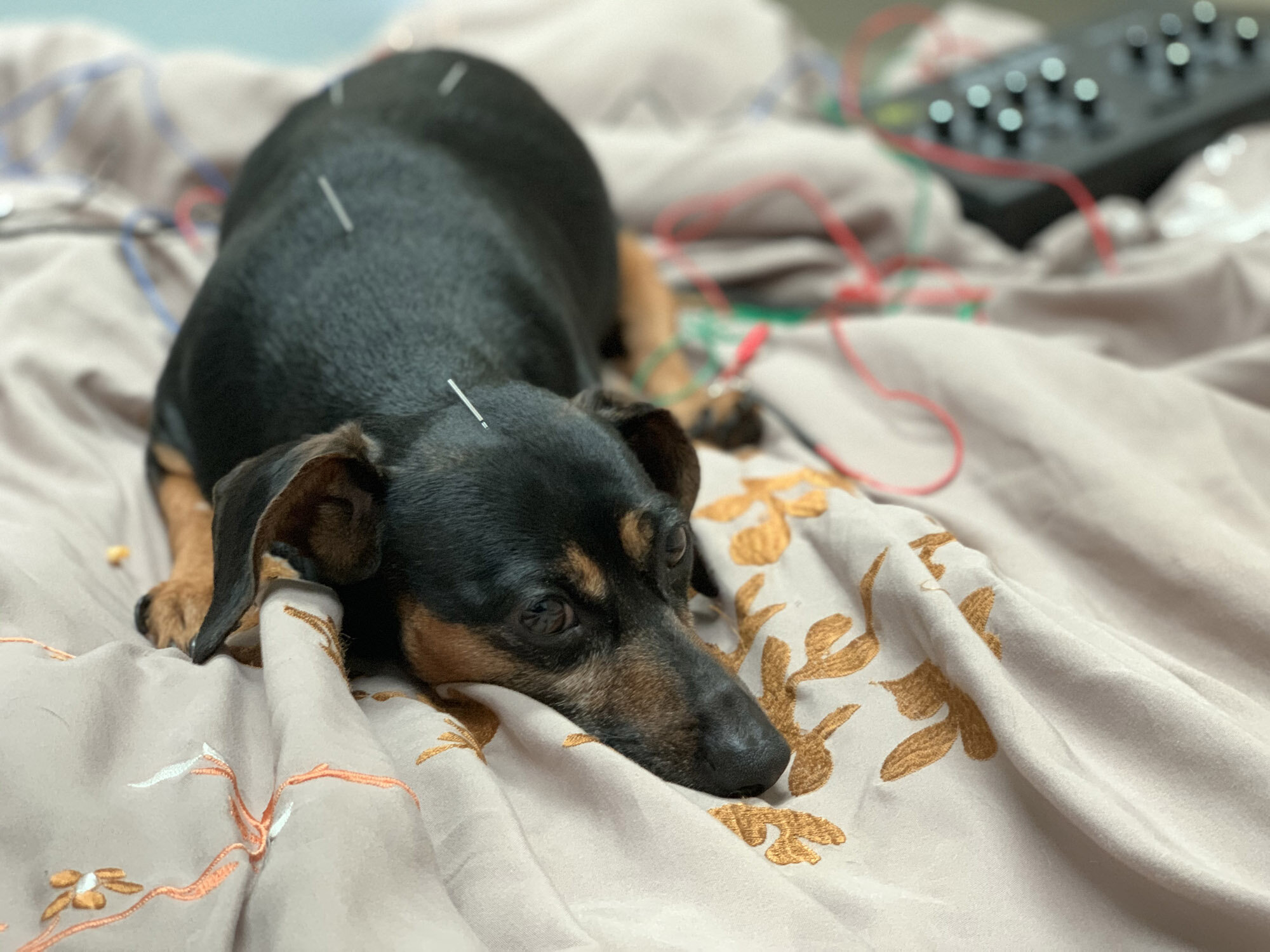
Dog Acupuncture Therapy
Treating Musculoskeletal and Neurological Issues
Acupuncture can be used to treat a wide variety of conditions. The most common are musculoskeletal and neurological issues. We are willing to tackle any issue or disease taking a toll on your pet’s quality of life that may not be managed effectively with Western medicine. Our techniques can also reduce or eliminate side effects caused by prescription drug use.
We tackle any issue harming your pet’s quality of life
Traditional Chinese medicine theories and techniques like acupuncture can be used to treat almost all diseases and attempt to prevent disease, including:
Musculoskeletal disorders: arthritis, cranial cruciate ligament tears (post-operatively or non-surgically), hip or elbow dysplasia, muscle strains
Neurological disorders: IVDD (Intervertebral disk disease), Seizures, Degenerative myelopathy
Cancer Patients: to promote quality of life, decrease pain, or minimize side effects of chemotherapy
Kidney failure
Autoimmune diseases- Immune mediated hemolytic anemia(IMHA), lupus, immune mediated polyarthritis (IMPA)
Gastrointestinal disorders- Inflammatory bowel disease, chronic vomiting
Urinary issues- Recurrent urinary tract infections (UTIs), Bladder Stones, Incontinence
Endocrine disorders- hypothyroidism, hyperthyroidism, Cushing’s disease, diabetes
Electro-acupuncture and Other Techniques
Zen Dog uses the following acupuncture techniques: dry needling, electro-acupuncture, aquapuncture, and moxibustion. Based on your pet’s condition, any or all of these techniques may be employed. Electro-acupuncture is the most commonly used technique, as it dramatically improves the amount of stimulation a patient receives and allows us to manually control the amount of stimulation received at a given needle point. Greater results are achieved in a shorter period of time, especially with musculoskeletal and neurological issues.
Initial examination with the first acupuncture treatment
Pricing:
Treatment – $275
Travel Fees – $100
Contact us to schedule an appointment!
During the initial appointment, we will review your pet’s medical history, perform a full physical/orthopedic/neurologic evaluation, and administer the first treatment based on the findings. At this time, we will set goals for treatment, recommend lifestyle changes, and establish a schedule for ongoing treatment. Initial examinations take close to 2 hours to allow for all issues and questions to be addressed. We offer our dog acupuncture service in NYC, Westchester and Long Island.
About Acupuncture
Believed to have originated around 100 BC, acupuncture is the practice of placing thin needles into strategic points of the body. In traditional Chinese medicine, the goal of acupuncture is to move Qi (energy/life force) along meridians (pathways) to balance the flow of energy, thereby alleviating pain and managing disease. In Western ideology, these needles stimulate nerves, muscles, and connective tissues to boost the body’s natural ability to modulate pain.
Acupuncture points were discovered by trial and error over thousands of years. With the help of modern medical diagnostics, we’ve learned that the majority of these established points correspond with important neurovascular structures. By engaging these structures, the body is able to modulate many neurotransmitters, including: endogenous opioids, GABA, serotonin, norepinephrine, endorphins, substance P, cannabinoids, and many others.
Many popular medications target these neurotransmitters to alleviate symptoms, however, these medications can also cause negative side effects and must be processed by several of the body’s organs. This can cause stress and dysfunction with prolonged use. Acupuncture does not involve any drugs or chemicals, thereby eliminating many side effects and organ stress while allowing the body to balance itself. Integrating acupuncture with judicious pharmaceutical treatments is the most ideal way to manage most conditions. In some cases, patients may be able to be weaned off of pharmaceuticals to a lower dose, or even entirely.


